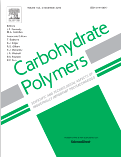 A journal has issued an expression of concern (EOC) for a nanofilm paper after a researcher protested being left off the author list.
A journal has issued an expression of concern (EOC) for a nanofilm paper after a researcher protested being left off the author list.
According to the notice in Carbohydrate Polymers, the University of Calcutta in West Bengal, India, where the research was carried out, has “failed to provide evidence of a thorough, fair, and proper investigation of this claim,” despite being presented with evidence from both sides.
The study’s last and corresponding author told us that his former student, who had previously co-authored some abstracts, got in touch with journal, alleging to be an author of the present paper.
Here’s the EOC for “Cationic guar gum orchestrated environmental synthesis for silver nano-bio-composite films:”
The concern is regarding a dispute of incorrect authorship of the above publication brought about by a researcher who claims that he should be included as an author of this paper. Despite being provided with evidence from both sides, the institute where the research purportedly took place (the University of Calcutta) has failed to provide evidence of a thorough, fair, and proper investigation of this claim, as is expected in cases of authorship disputes (which are not the responsibility of the publisher). The University of Calcutta is required to resolve this dispute (with the assistance of the disputing parties). The concern and this note will remain appended to the above mentioned article, until and unless the aforementioned Institute provides the Editor of Carbohydrate Polymers with evidence that an equitable and fair resolution to the dispute has been reached.
Arup Mukherjee, the study’s last and corresponding author from the University of Calcutta, told us:
…one of my student[s] who left our laboratory about 6/7 years back suddenly wrote a letter to that journal claiming that he should be included as a co-author of this article. He produced some abstracts of poster presentations of our laboratory works related to Guar gum in which he was one of the co-authors. These abstracts were however unrelated and not in line with the present publication.
Mukherjee added:
The journal official preferred to write directly to the vice chancellor without asking the communicating author on any aspects of it. Our faculty dean investigated independently on receipt of such a query and that is a normal practice within the University. The faculty dean presented a very simple report to the journal independently in his own capacity.
But Mukherjee — who did not name the student in question — said the journal thought the institution’s report was “unacceptable,” adding:
The journal official should have expressed much more trust on the university investigation report and should not have acted much beyond [its] own capacity.
The vice-chancellor at the University of Calcutta, Ashutosh Ghosh, has not responded to our questions about the university’s investigation.
We’ve contacted representatives of publisher Elsevier, and will update the post with anything else we learn.
Like Retraction Watch? Consider making a tax-deductible contribution to support our growth. You can also follow us on Twitter, like us on Facebook, add us to your RSS reader, sign up on our homepage for an emailevery time there’s a new post, or subscribe to our daily digest. Click here to review our Comments Policy. For a sneak peek at what we’re working on, click here.
There’s a somewhat similar EoC, albeit involving different authors, in Spectrochimica Acta Part A:
http://dx.doi.org/10.1016/j.saa.2016.07.040